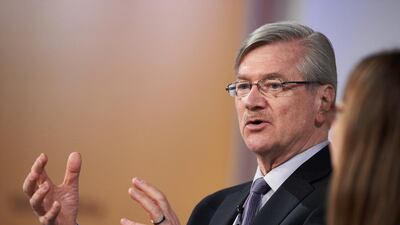ABU DHABI // Children as young as 4 are being bullied and more needs to be done to teach young people empathy and anger management, experts say.
Dr Haneen Jarrar, a psychologist at Camali Clinic in Dubai, believes “pre-bullying”, or behaviour that might lead to bullying, is a big problem and that preventative measures at an early age could stop it worsening in later years.
“We see bullying and pre-bullying in many countries, but in Dubai we see a very high rate of such cases,” Dr Jarrar said. “There are a lot of newcomers coming to the schools and bullies pick on someone who is different.
“We see bullying from the age of 7 and we see bullying in preschool or in school buses.”
The ages of 3 to 7 are formative years, so if children are bullied at this age they can suffer from problems such as anxiety, depression, or suicidal thoughts later in life, said Dr Jarrar.
Manal, an Emirati, said her eight-year-old son was nearly drowned by a bully in his class.
“My son was 8 at that time and he was tiny for his age. There was a boy making fun of him all the time. He did not want to go to school,” the mother of four said.
The boy did not tell his parents he was being bullied, she said. “He kept asking me, ‘Mum, why am I short?’”
When Manal, who works in a hospital, told the class teacher about what was happening, the teacher separated the bully from Manal’s son, but the bullying did not stop.
After the bully tried to drown her son in a swimming pool, Manal went to the principal and told him he must act. But he told her that she should raise her son’s self-esteem.
“Schools have to notice if a child is a bully and keep them busy and give them responsibility,” she said.
Dr Jarrar said parents needed to watch for behavioural changes that bullied children show, such as a reluctance to go to school, anxiety about separation from parents, low self-confidence and self-esteem, and a drop in appetite.
Dr Ron Slaby and Dr Kim Storey recently visited the Salama bint Hamdan Al Nahyan Foundation in Abu Dhabi to discuss bullying in early childhood. Dr Slaby is a developmental psychologist at the Boston Children’s Hospital and Dr Storey is a child development specialist.
“We’re focusing on this age group because this offers one of the best opportunities that parents and teachers have to help children prevent bullying before it starts,” Dr Slaby said. “This is one of the newest topics that is being considered worldwide.”
Bullying could easily escalate into violence or threats of violence if not checked, he said.
“Teasing can become taunting, nicknaming can become name-calling, laughing with someone can become laughing at someone and bossing can become coercion and threatening,” Dr Slaby said.
“The first approach has been to stop bullying in the school years. To prevent bullying, we have to look earlier. The field is looking more and more at prevention.”
He suggested that parents tell children about their own experiences with bullying to help them talk about it.
Data from US studies show that 20 per cent of children between the ages of 2 and 5 have experienced physical bullying, while 14 per cent experienced verbal bullying.
Dr Storey said talking to young children at home or at preschool about bullying was a new strategy.
“We are just beginning to understand that the best way to prevent bullying is to start in the early years,” she said.
“Work with children and help them to develop their social skills so that they know how to stand up to bullying before it starts and before it escalates.”
arizvi2@thenational.ae


